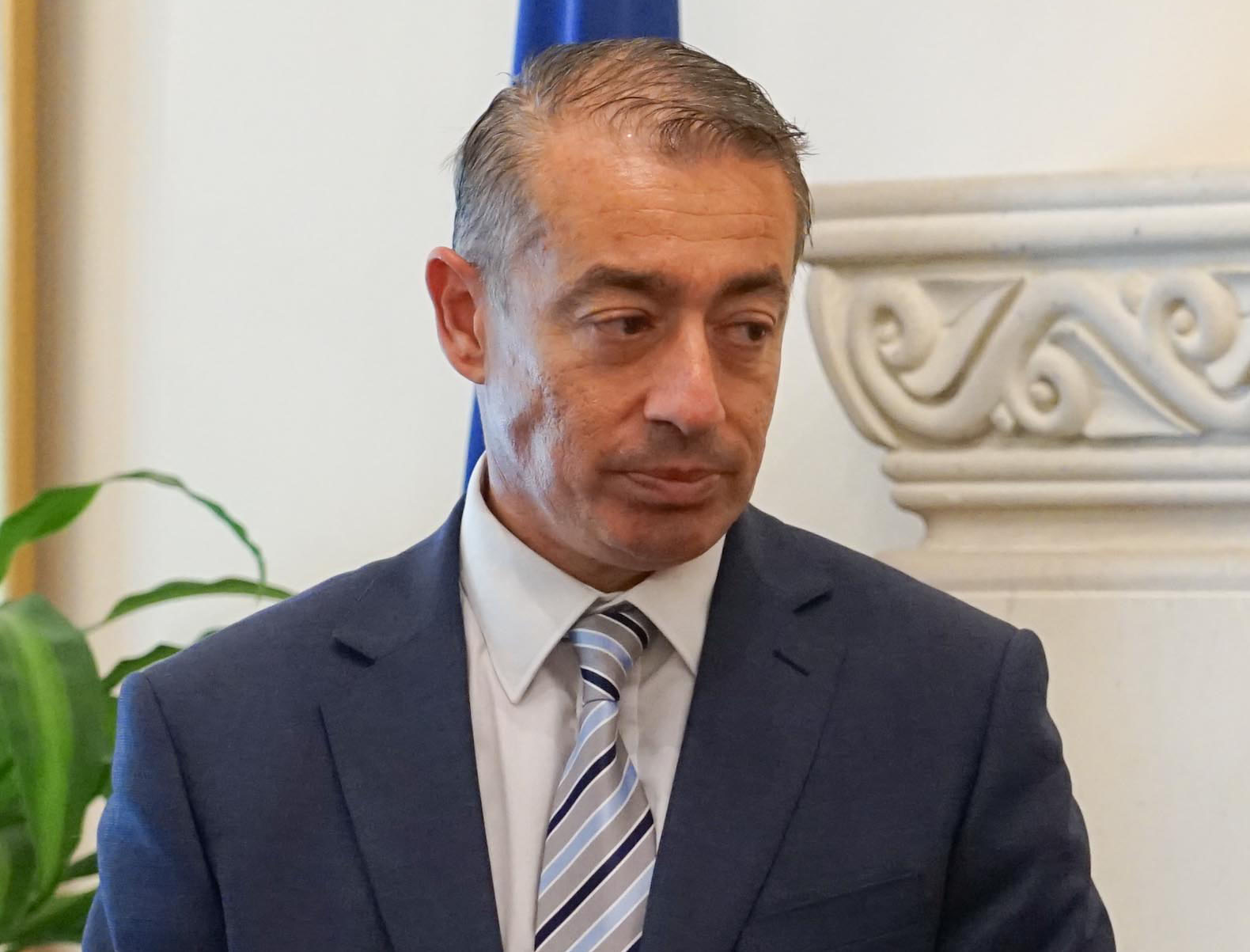The trial of former Volunteer Commissioner Yiannakis Yiannaki continued on Monday before the Nicosia District Court, with testimony from two former presidents of the Cyprus Youth Organisation (Onek) and a justice ministry official.
Justice ministry official Maria Mounti was the first to testify.
Mounti explained that between June 2021 and August 2022, she had corresponded with American authorities regarding clarification of Yiannaki’s degree from San Diego State University, as well as his entry into the United States between 1984 and 1992.
According to Mounti, the US authorities confirmed that while Yiannaki had attended courses at the university in the fall of 1989, he was never awarded a civil engineering degree.
During cross-examination, defence lawyer Petros Stavrou argued that Mounti could not personally verify the US authorities’ responses, noting her role was limited to receiving and forwarding official requests and replies.
Mounti countered that this was precisely the scope of her responsibilities.
Following Mounti’s testimony, former Onek president Manthos Mavrommatis, who served between May 1994 and May 1997, took the stand.
According to Mavrommatis, Onek required applicants for the position Yiannaki later filled to hold a degree in a specific field such as social sciences or pedagogy, along with five years of experience in organising youth centres.
However, he added that the board tried to be flexible.
“If someone was good with youth, we gave them the opportunity,” he said, noting that a candidate with significant youth sector experience could be selected even without the required degree.
Mavrommatis admitted he did not review any of the CVs submitted for the position in 1996, assuming they had been reviewed by a responsible official. Yiannaki, he explained, was not initially selected for the post but later filled the role as a runner-up.
Asked by prosecutor Marina Masoura about the circumstances of Yiannaki’s appointment, Mavrommatis said he could not recall the details.
“Either the selected candidate declined the offer or resigned shortly after, and Yiannaki was chosen from the list of runners-up,” he said.
He confirmed Yiannaki’s appointment on June 3, 1996, for a two-year term but could not say if the contract was renewed, as he had stepped down as president by then.
However, he noted that Yiannaki was later selected for a service-based role under Onek’s “Youth for Europe” programme.
Mavrommatis acknowledged that Yiannaki’s claim of holding a university degree had influenced the board’s decision, stressing that the board might have made a different choice had it known he did not possess a degree.
During cross-examination, Stavrou asked Mavrommatis to elaborate on Onek’s hiring procedures.
“Onek was a new organisation that aimed to address youth issues. It had procedures but also sought flexibility to make appropriate decisions at its discretion,” Mavrommatis said, adding that the procedures were not as rigid as those in the public service.
The court proceedings briefly turned to the issue of political influence. Mavrommatis confirmed that Yiannaki was an active member of the Democratic Party’s youth organisation, NEDISY, and that they knew each other through their shared political affiliation.
When Stavrou asked if partisan interference had played a role in staffing decisions at Onek, the prosecution objected before Mavrommatis could respond.
Stavrou argued that the board was appointed by the Council of Ministers and was composed entirely of political figures. Prosecutor Masoura countered that such claims were irrelevant to the case.
Judge Nicole Grigoriou overruled the objection and allowed the witness to answer.
Mavrommatis explained that all board members at the time were either party officials or affiliated with party youth wings.
“The policy then was to staff the Youth Organisation with people who understood the youth sector,” he said, adding that he personally had no party involvement.
Prodromos Alabritis, who served as president of Onek from 2019 to 2021, was the last witness to testify.
Alabritis revealed that four separate personal files for Yiannaki existed within the organisation, documenting his roles from collaborator overseeing youth centres to service-based positions under the “Youth for Europe” programme, and finally to his appointment as a permanent officer in 2007.
However, he noted that key documents, including Yiannaki’s terms of service and required qualifications, were missing from the files.
Alabritis explained that although Yiannaki had initially been hired on a 10-month service contract, he remained in the role for nearly a decade, with the board repeatedly extending his contract.
When questioned by defence lawyer Stavrou about a 2021 report by the former auditor-general regarding the year 2018, which flagged issues such as unnumbered personal files and permanent appointments made without formal job announcements, Alabritis said he was not aware of the report but added that procedural reforms had since been implemented.
“The deficiencies came to our attention. We discussed as a board of directors that the record-keeping process should be redesigned, and procedures introduced to ensure proper documentation. I cannot know exactly what was in place previously,” he concluded.
The trial is scheduled to resume on June 16.
Yiannaki resigned from his role as volunteer commissioner in 2021 amid a media storm over the alleged crimes. The case attracted intense social media scrutiny, with images of crudely doctored documents circulating online.
In 2022, then-police spokesman Christos Andreou said San Diego State University, the institution from which Yiannaki claimed to have graduated, had no record of him.
He said that the police had received oral confirmation from the university in question that Yiannaki never graduated from the institution.






Click here to change your cookie preferences